Start Here
Homepage Bottom Form
We will get back to you as soon as possible.
Please try again later.
How to Read a Fire Restoration Estimate
🧾 How to Read a Fire Restoration Estimate (with Sample Breakdown)
Created by House Fire Solutions – Helping Homeowners Understand Their Fire Damage Estimates and Get Fair Value
After a house fire, you’ll receive one or more restoration estimates from your contractor, public adjuster, or insurance company.
These documents can look confusing — full of codes, line items, abbreviations, and hidden costs.
This guide breaks down how to read, understand, and compare estimates so you can make sure you’re getting fair, complete compensation.
🏠 1. Overview: What a Fire Restoration Estimate Is
A fire restoration estimate is a detailed cost document outlining how much it will take to repair, replace, and restore your home after a fire.
It should include:
- Scope of work: What will be done
- Quantities: How much material or labor is required
- Unit cost: Price per foot, per hour, or per item
- Totals: Labor, materials, overhead, profit, and taxes
Most insurers and contractors use Xactimate (industry-standard estimating software).
Each line in the estimate has codes that represent tasks like demolition, cleaning, painting, or rebuilding.
📋 2. Typical Structure of a Fire Restoration Estimate
A professional estimate is usually broken down into sections:
| Section | Description |
|---|---|
| Header | Contractor’s info, claim number, date, address, insured info |
| Summary | Total cost, taxes, depreciation, and net claim amount |
| Room-by-Room Breakdown | Individual estimates for each damaged space |
| Line Items | Specific materials and labor costs per task |
| Photos / Diagrams | Visual evidence supporting each cost |
| Notes & Exclusions | Clarifications about what’s included or excluded |
🧱 3. Sample Estimate Breakdown (Simplified Example)
Below is a sample structure you might see in a real
fire restoration estimate generated from Xactimate or Symbility:
| Line # | Room / Area | Description of Work | Code | Quantity | Unit | Unit Price | Total |
|---|---|---|---|---|---|---|---|
| 1 | Living Room | Remove drywall (½”) | DMO490 | 250 | SF | $1.15 | $287.50 |
| 2 | Living Room | Install new drywall (½”) | DRY120 | 250 | SF | $2.25 | $562.50 |
| 3 | Living Room | Prime and paint walls | PNT350 | 250 | SF | $1.50 | $375.00 |
| 4 | Kitchen | Remove damaged cabinetry | CAB650 | 1 | EA | $225.00 | $225.00 |
| 5 | Kitchen | Replace upper/lower cabinets | CAB680 | 1 | EA | $3,250.00 | $3,250.00 |
| 6 | Kitchen | Clean smoke residue from ceiling | CLN420 | 120 | SF | $0.75 | $90.00 |
| 7 | Hallway | Odor removal – ozone treatment | ODR220 | 1 | EA | $250.00 | $250.00 |
| Subtotal | $5,040.00 | ||||||
| Overhead & Profit (O&P) | +10% / +10% | ||||||
| Sales Tax | +8.5% | ||||||
| Total Estimate | $6,070.00 |
💬 4. Key Terms You Need to Understand
| Term | What It Means | Why It Matters |
|---|---|---|
| Scope of Work | What’s covered in the project | Defines what the contractor will (and won’t) do |
| Line Item | Each specific task or repair | Shows exactly how costs are calculated |
| Depreciation | Reduction in value due to age/wear | Affects how much you get upfront |
| RCV (Replacement Cost Value) | Total to replace damaged items new | The full amount you’re entitled to under RCV policies |
| ACV (Actual Cash Value) | RCV minus depreciation | The amount paid before proof of replacement |
| O&P (Overhead & Profit) | Extra 10% + 10% markup | Should be included if 3+ trades are involved |
| Allowance | Estimated placeholder for unknown cost | May require receipts to adjust later |
| Scope Creep | Extra tasks not in the original estimate | Can cause disputes if not documented |
| Supplement | Additional claim submitted for missed damage | Ensures you’re paid for overlooked repairs |
🧰 5. Common Areas Included in Fire Estimates
Fire restoration estimates typically include separate sections for:
✅
Structural Repairs: framing, roofing, walls, flooring, drywall
✅
Smoke & Soot Cleaning: walls, ceilings, HVAC, ducts, insulation
✅
Odor & Air Quality: ozone, thermal fogging, air scrubbers
✅
Contents Cleaning: furniture, electronics, textiles
✅
Water Mitigation: dehumidifiers, pumps, drying equipment
✅
Electrical & Plumbing: rewire, replace outlets, inspect systems
✅
Demolition & Debris Removal: dumpster fees, labor
✅
Reconstruction: rebuild, repaint, reinstall fixtures
💵 6. Understanding Overhead, Profit, and Depreciation
- Overhead & Profit (O&P):
Contractors typically add 10% + 10% for project management and business expenses.
Insurance companies often resist paying O&P unless multiple trades are involved (e.g., drywall + electrical + flooring).
👉 Always verify it’s included if your contractor uses multiple crews. - Depreciation:
This is value withheld until you show proof you’ve replaced the damaged item.
Example: - RCV (New Value): $10,000
- Depreciation: $2,500
- ACV (Paid Now): $7,500
- Recoverable Depreciation (Paid Later): $2,500 after repair proof
🧾 7. Red Flags in a Fire Restoration Estimate
🚫 Missing or vague descriptions (e.g., “repair wall” without measurements)
🚫 No overhead or profit listed (hidden cost)
🚫 Low unit prices compared to market rates
🚫 Missing line items like cleaning or odor removal
🚫 No reference to permits, inspection fees, or taxes
🚫 Large “miscellaneous” or “lump sum” line items
🚫 Estimate doesn’t list who performed the inspection
🚫 No scope for contents cleaning or HVAC decontamination
🧠 8. How to Compare Multiple Estimates
| Step | What to Check | Why It’s Important |
|---|---|---|
| 1 | Align room-by-room categories | Ensures fair comparison |
| 2 | Check material quantities (SF, LF, EA) | Avoid undercounting |
| 3 | Compare unit prices | Exposes lowball bids |
| 4 | Verify O&P inclusion | Ensures full payout |
| 5 | Confirm permits and cleanup are included | Prevent surprise add-ons |
| 6 | Ask for a summary per trade | Easier for adjuster review |
| 7 | Review for missing categories | Protects from incomplete restoration |
📑 9. Questions to Ask Your Contractor or Adjuster
- How was this estimate prepared — onsite inspection or software only?
- What version of Xactimate (or Symbility) was used?
- Are your line items based on local market rates?
- Why were certain rooms or materials excluded?
- Are all permits, debris removal, and taxes included?
- How do you handle change orders if costs increase later?
- Is overhead and profit already included in the total?
- Does this estimate reflect RCV or ACV values?
- Can you provide an itemized breakdown per trade?
- Will I receive a final invoice matching this estimate?
🧾 10. Sample Summary Page (Estimate Recap)
| Section | Subtotal |
|---|---|
| Fire Damage Repairs | $45,000 |
| Section Subtotal Fire Damage Repairs $45,000 Smoke & Odor Cleanup | $8,000 |
| Water Mitigation | $3,500 |
| Demolition & Debris | $2,500 |
| Contents Cleaning | $6,000 |
| Electrical & HVAC | $4,000 |
| Permits, Taxes, & Fees | $1,000 |
| Subtotal | $70,000 |
| Overhead (10%) | $7,000 |
| Profit (10%) | $7,700 |
| Total Estimate | $84,700 |
💡 11. Pro Tips from House Fire Solutions
✅ Always get
at least two independent estimates
to compare.
✅ Ask your contractor to
walk through the estimate line by line
with you.
✅ Keep a digital copy of all versions — initial, supplemental, and final.
✅ Use House Fire Solutions™ templates to track
scope changes and approvals.
✅ Never approve a “lump sum” bid without detailed breakdowns.
✅ Ask for clarification on
every code or abbreviation
you don’t understand.
💬 Final Advice from House Fire Solutions
A clear, detailed estimate is the foundation of a fair insurance payout.
If you don’t understand it — question it.
If something feels missing — document it.
Transparency and detail protect your recovery.
Our Team Helps You Navigate Insurance, Restoration, and Rebuilding
It is a long established fact that a reader will be distracted by the readable content of a page when looking at its layout.
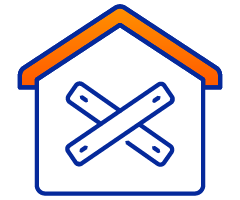
Board-Up
Our Network of Board Up Specialist Will Secure your property fast
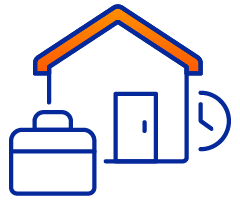
Temp Housing
We'll Help You Find Safe Shelter while you recover

Public Adjusters
Our Network of Fire Damage Adjusters Will Fight Help for a fair insurance payout
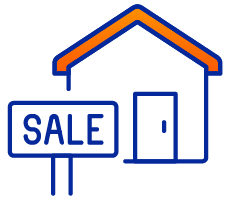
Investors
Our Partner Specializes in Buying Fire Damaged Homes So you Can Sell your home as-is

Content Cleaning
Restore what matters most
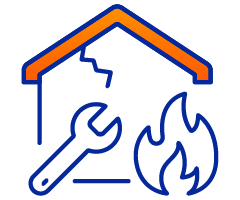
Restoration
Bring your home back to life
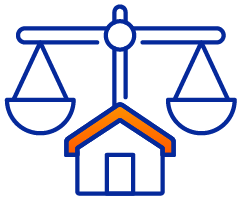
Attorneys
We have a network of Protect your rights and claims

Mental Health
Support for you and your family
Want To See If We Can Help You
If you'd like to speak with us today about purchasing Social Security, Personal Injury, Workers' Compensation or Employment Law Leads.
Homepage Bottom Form
We will get back to you as soon as possible.
Please try again later.